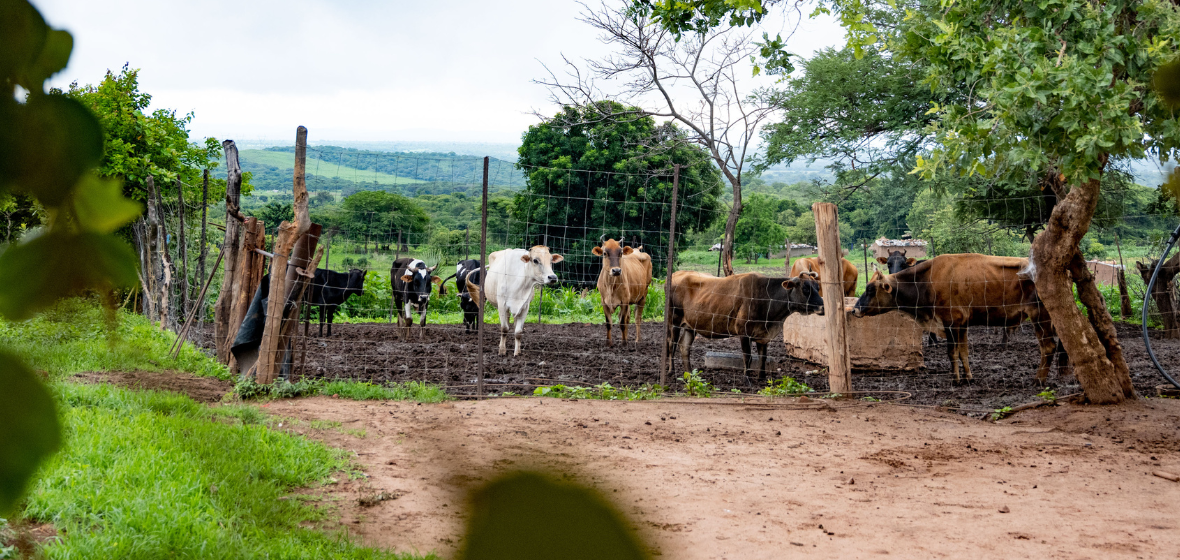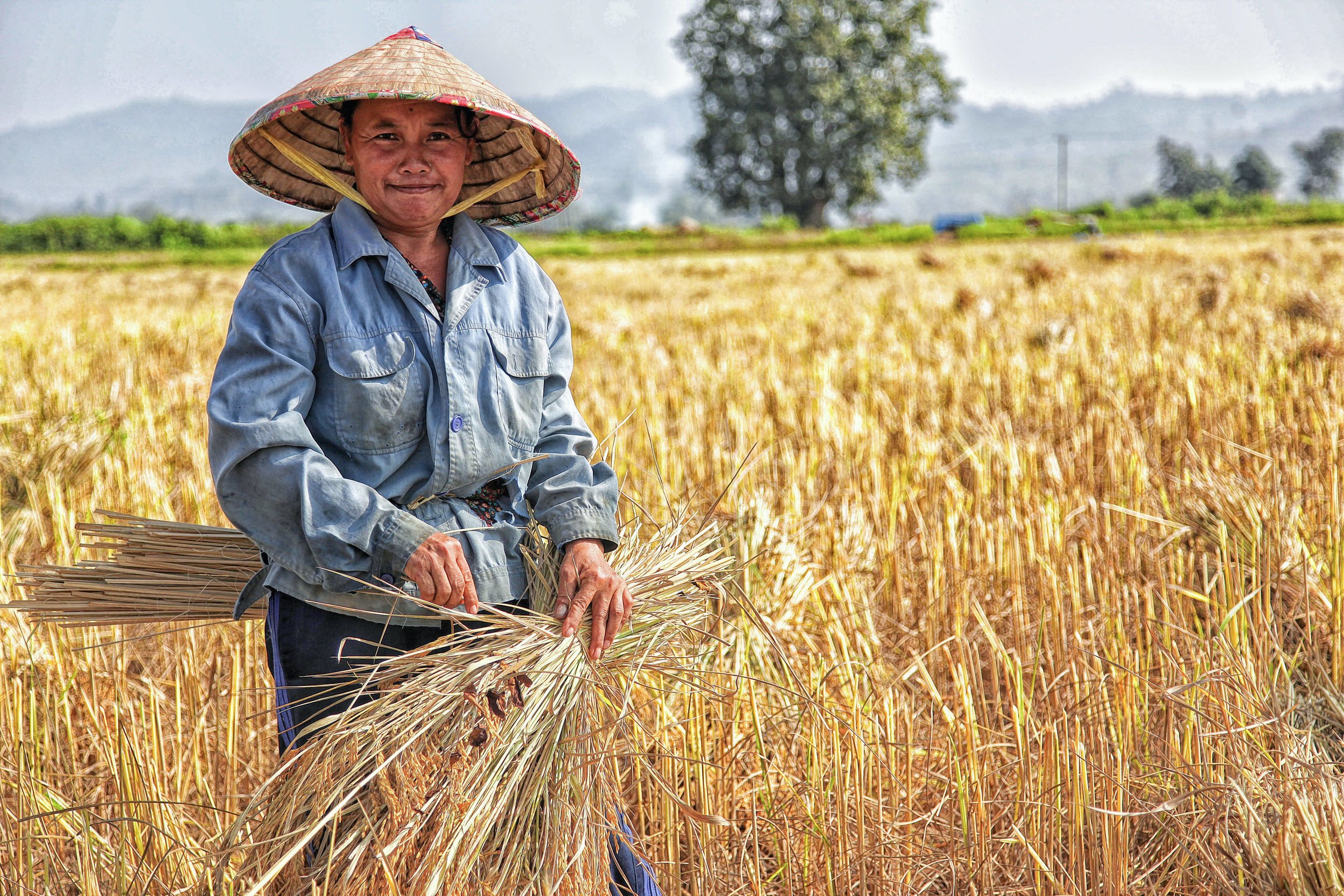
BLOGS, ARTICLES AND NEWS
Get updates directly from the CA4SH Global team and stakeholders
Soil: A Foundation for Life, Culture, And Sustainability
During a recent webinar FROM DUST TO PROSPERITY: The ROLE of Soil in Shaping Africa’s Future co-hosted by the coalition of Action 4 Soil Health and the Allure of Soil Campaign, experts from around the world shared their perspectives on soil’s significance, its degradation, and the urgent need for action to restore and preserve it.
YPARD Zambia Hosts YPARD Cafe on World Soil Day
On 5th December 2024, World Soil Day, YPARD Zambia hosted a YPARD Café dubbed "Youth Led Interventions for Soil Health and Climate Resilience". The event, which took place through an online platform, was meant to Convene a diverse group of young leaders to discuss youth led soil health interventions for climate resilience explore diverse opportunities available for youth to make impact in the soil health sector and foster youth engagement to elevate soil health interventions for climate resilience in national dialogues.
One Acre Fund Campaign | Closing the climate finance gap for smallholder farmers in Africa
Smallholder farmers across sub-Saharan Africa are already witnessing the devastating impacts of climate breakdown on their soils and crop yields, and by extension their livelihoods and wellbeing.
This issue isn’t unique to sub-Saharan Africa. Across the globe smallholder farmers are contending with ever more erratic temperatures and weather patterns as a result of the climate emergency. In the face of failing harvests and limited income, most smallholders lack the means to build resilience to these climate shocks.
Why is climate finance important?
What's the cost of building climate resilience for smallholder farmers?
Learn more and access campaign assets here
#Youth4Soil Member in the First Cohort of the Youth Academy on Climate Adaptation & Leadership
From 19-26th September 2024, the inaugural cohort of the Youth Academy on Climate Adaptation & Leadership met in Nairobi, Kenya to strengthen their skills around youth leadership and climate adaptation.
The Academy was officially launched via a partnership between the Global Centre on Adaptation, the University of Nairobi, and the University of Groningen. The University of Nairobi hosted the 62 students, government officials, youth organizations, and other youth stakeholders who were selected to join the Academy. Among them was #Youth4Soil member Eliseus Bamporineza who shared some reflections in a Q&A with CA4SH.
How Healthy Soil Aligns the Three Rio Conventions
Healthy soil is the cornerstone of sustainable development, playing a crucial role in providing ecosystem services, achieving food and nutrition security for all, and climate regulation. Its significance can be underscored through the lens of the three Rio Conventions: the United Nations Framework Convention on Climate Change (UNFCCC), the United Nations Convention to Combat Desertification (UNCCD), and the Convention on Biological Diversity (CBD). Each convention addresses a distinct but interconnected aspect of environmental sustainability, but what remains constant is the critical role that scaling global soil health plays in achieving the objectives of the conventions.
To hone in on soil as a holistic approach to global environmental challenges, we have summarized some of the ways that healthy soil is central to the objectives of the Rio Conventions and outlined some of the key ways forward.
Eleven Facts about Soil Carbon with Professor Pete Smith
This is the first in our series of interviews with the LUNZ Soil Health and Carbon Dynamics TAG community, in which we explore the key themes we’ll be working on over the next 40 months.
In this instalment, TAG co-leads Ellen Fay (Sustainable Soils Alliance) and Professor Pete Smith (University of Aberdeen) dig into some of the challenges around soil carbon, including how it relates to soil health, how it is measured, where its greatest opportunities lie and its role in land use change and net zero.
The full interview can be viewed on the LUNZ YouTube channel here, or read on for a summary of the key takeaways.
YPARD’s Involvement in SB60: Championing Young Professionals in Climate Advocacy
From June 3-13, 2024 the 60th session of the Subsidiary Bodies of the United Nations Framework Convention on Climate Change (UNFCCC) was convened in Bonn, Germany. These sessions serve as a crucial mid-year event, laying the groundwork for COP29 in Baku, Azerbaijan. This gathering is an essential platform for young professionals to observe and get involved in negotiations, host and participate in side events to raise important issues, and to amplify youth voices from all over the world.
Read the full story from YPARD
World leaders at COP28 urged to prioritize soil health in climate plans
Conserve soils to meet global climate, land and biodiversity goals, say experts.
Read the full story from CIFOR Forest News
Image: Soil testing in Malawi. Photo by Kelvin Trautman/CIFOR-ICRAF
Op-Ed: The EU’s 2040 climate targets and strategy must prioritise farmers
“Setting ambitious climate targets is great, achieving them is even better. The European Commission can be commended for setting its 2040 aim of a 90% reduction in greenhouse gas (GHG) emissions from 1990 levels.
To achieve the target, yesterday the Commission has proposed a significant scale-up of carbon removals on the path to climate neutrality.
Yet before waiving the victory flag for ambition, we must acknowledge that the EU is already struggling to meet the majority of its climate and energy 2030 targets and there are significant policy implementation gaps post-2030.”
By Erica Johnson (External Affairs Manager of Agreena) and Zsolt Lengyel (Secretary of the Board of the Institute for European Energy & Climate Policy)
Op-Ed: Biochar Carbon Removal Strengthens Global Food Security
By: Wendy Lu Maxwell-Barton, International Biochar Initiative
Since September of 2023, the world has known that the global community is not meeting the goals set in the Paris Accord— and the window to meet them without exceeding 2 degrees C or warmer is rapidly closing. The United Nations Framework Convention on Climate Change’s (UNFCCC) Global Stocktake process emphasized both the need for emissions reductions, as well as carbon dioxide removal (CDR) to slow and eventually reverse climate change-caused global warming.
While CDR technologies come in many forms and scales, the technology funded at a very high rate to date is direct air capture, garnering some US$4B in funding, tax breaks, and other sources of government funding. Despite this, there is less well-known yet predominant CDR technology that simultaneously delivers improved soil health, strengthened food security, and increased farmer profits through increased crop yields and lowered input costs on top of carbon dioxide removal. What am I referring to? Biochar carbon removal.










